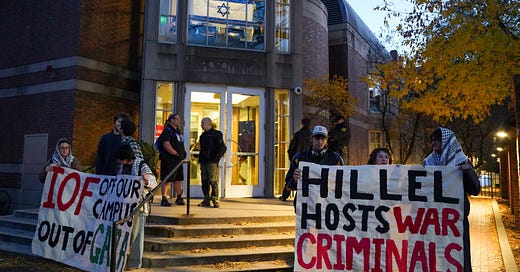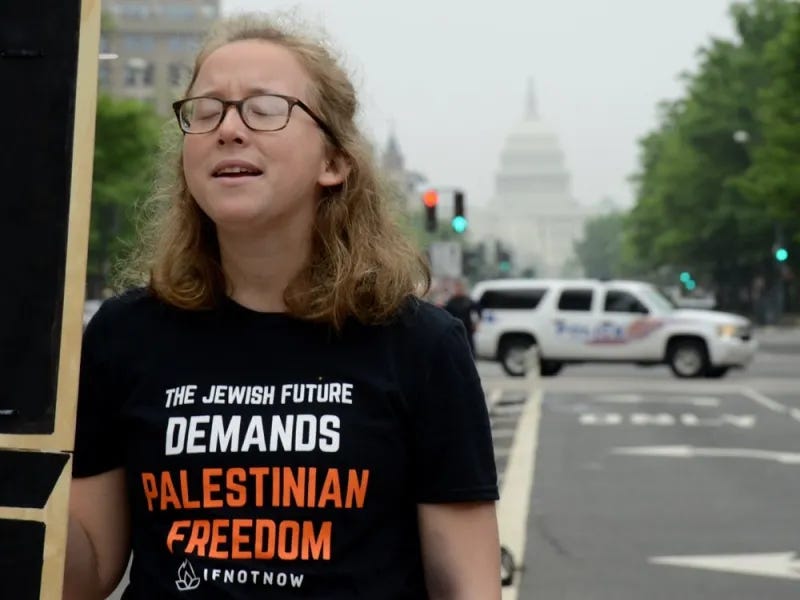An article was published in the Harvard Crimson recently putting forth an argument that we’ve all become nauseatingly familiar with: Jewish organizations embracing Zionism, as opposed to putting their understanding of “Judaism” first, leaves anti-Zionist Jews feeling left out of our community. In this case, the argument was directed towards Hillel after they hosted Ronen Morelis, the former chief spokesman of the IDF. “Hillel’s supreme embrace of Zionism comes at a price. With its insistence upon peddling a politics above representing a people, Hillel has undermined its self-proclaimed title — and arguably only essential role — as the ‘hub for Jewish life’ at Harvard.”
The common response Zionists give to this type of criticism is to correctly point out that the vast majority of Jews are Zionists. So much so that being Zionist is seen inseparable from countering antisemitism and promoting religious freedom in the diaspora.
Now, perhaps an argument can be made that Jewish organizations should make room for the small minority of Jews who go against the grain of the majority, but I think there is actually a deeper premise being forwarded by anti-Zionists that needs to be addressed here. The premise being that if Jewish organizations toned down or eliminated their institutional Zionism, that anti-Zionist Jews would suddenly be welcome at Jewish institutions.
But, of course, this is absurd. Jewish organizations did not become uniformly Zionist for no reason. Jewish organizations became uniformly Zionist because their membership demanded so, a demand which has only become more powerful since October 7th. As noted in the Crimson article, J Street was suspended by Harvard Hillel recently, suggesting that J Street was tolerated by them beforehand. In fact, many Zionist organizations previously tolerated the obvious anti-Zionist trojan horse that was J Street for years, despite stiff opposition from their members. My parents’ Conservative synagogue, for example, invited a guy from J Street to speak last Sukkot, just a week before October 7th, and even had a flier on the bulletin board promoting the organization. When asked why an organization like J Street was allowed to do this, the Rabbi said that there’s no problem with intellectual diversity. But a week later, the “intellectual diversity” was tolerated no longer.
The reality is that most of these Jewish organizations are just looking to survive and grow, and the more people they can include, the better. Many of these Jewish organizations have made overtures to anti-Zionists in an effort to expand their appeal. But they always run into the inevitable problem that most other Jews despise these people, and don’t want to be part of an organization that tolerates them.
Which, of course, is why anti-Zionist Jews don’t demand tolerance. The author of this Crimson piece does not indicate anything from Hillel that is intolerant of anti-Zionist Jews. The presence of an Israeli flag does not physically prevent an anti-Zionist Jew from attending a Shabbat dinner. Inviting a speaker who served in the IDF does not preclude an anti-Zionist Jew from going to a lunch-and-learn about this week’s Parsha. The existence of an organized trip to Israel for Zionists to experience our proud history and culture does not stop an anti-Zionist Jew from going to look at mass graves in Lithuania to experience theirs. Jewish organizations can bend over backwards to appeal to anti-Zionists but so long as they do anything Zionist whatsoever, anti-Zionist Jews don’t feel tolerated. The same applies to other demoralization campaigns: Hillels’ that embrace the DEI doctrines of anti-racism or decolonization are still not tolerate by the DEI crowd.
But, of course, this is all cope. Anti-Zionist Jews don’t avoid Hillel Shabbat dinners because there are Israeli flags on the walls. They avoid them because no matter how much they cleanse the room of Zionist aesthetics, they cannot escape the judgment of their fellow Jews. The word ‘kapo’ pierces through them like a silver bullet, even if it goes unspoken. They know that’s what everyone there is thinking. The fact remains that many ‘anti-zionist’ jews are also the product of intermarriage and reform ‘conversions’ and therefore exist on the periphery of the Jewish community. The Dunning-Kruger effect might very well be at play here.
This reality, that anti-Zionist Jews are simply despised by the rest of their community, viewed as deserving of the title given to Jewish traitors during the Shoa , is too much for them to bear. Thus, they must come up with a fantasy that it is the Zionist aesthetics of Jewish organizations that’s keeping them out. But deep down, they know that’s not true. They know that if, G-d forbid, Israel ceased to exist tomorrow and the Zionist project was over, they would not be welcome back in Hillel. In fact, they’d only become more hated and more isolated by everyone else. So they can continue their futile attempts to bend Jewish organizations to their will. It won’t stop the rest of us from muttering ‘kapo’ as we walk by them on the streets.
- Beau Chasse







I find this 'identity' as an anti-zionist Jew belonging to a group that has no clarity about who they are and what they're about. These other folks seem to be completely empty of anything useful. It seems a psychological problem called an 'introject' where they take on the agenda (emotions and identity) of others as they're own due to their own unsorted out feelings about their own identity.
Equally toxic are the sectors of the ultra-Orthodox communities that shun Zionism because it came about as a secular political movement during the period of other Nationalistic movements like Communism and Socialism. Secular and not religious origins is what bothers them. They have to eat their misgivings as they live and enjoy the benefits of the State of Israel. Its happening but slowly. It seems more wholesome though than this Progressive anti-Zionist chevra. At least the Religious Anti-Zionist (which I despise their perspective) are rooted in a love for the Land of Israel and our religious and historic connection to the Land through the Torah.